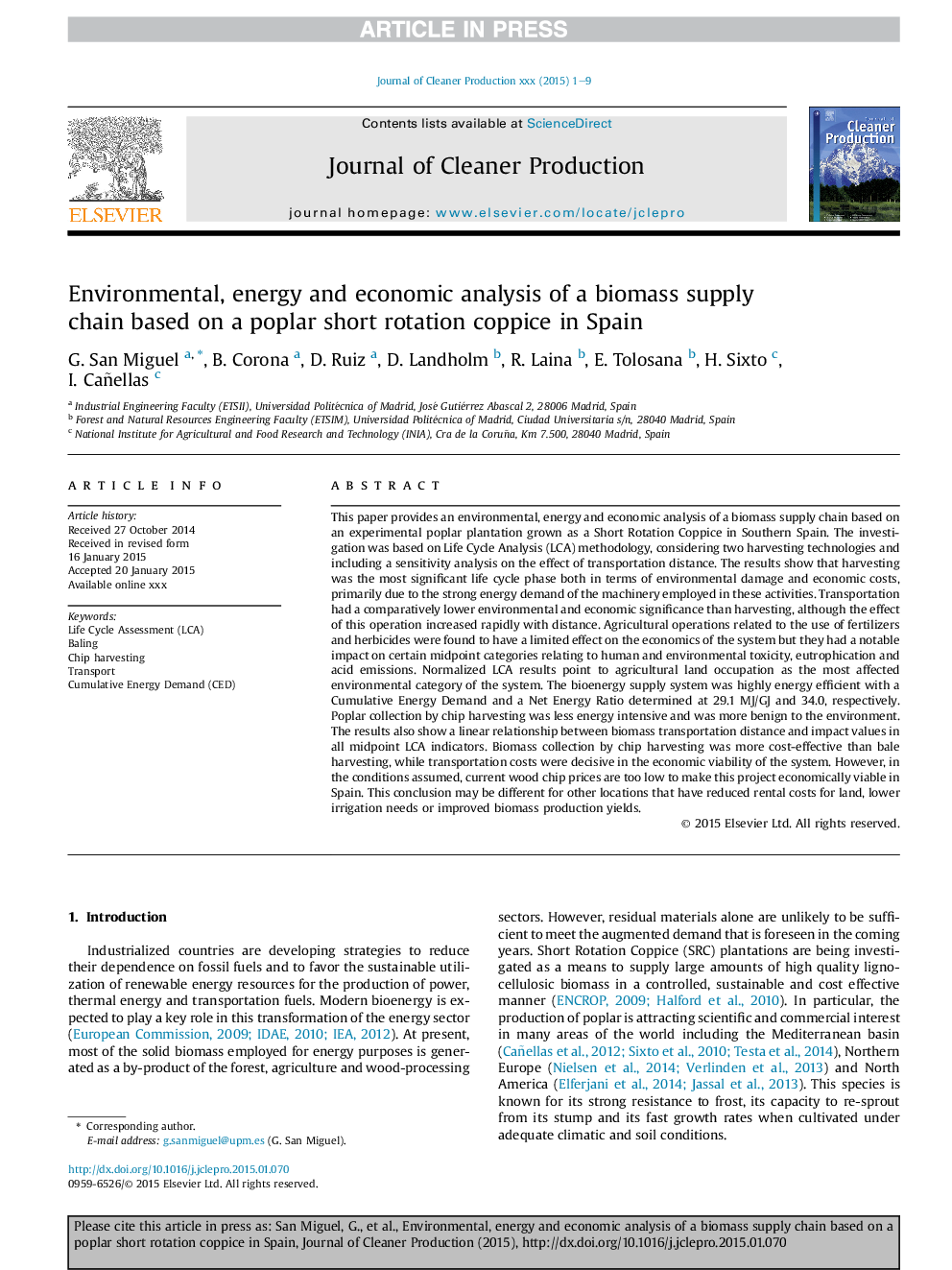| کد مقاله | کد نشریه | سال انتشار | مقاله انگلیسی | نسخه تمام متن |
|---|---|---|---|---|
| 8104549 | 1522152 | 2015 | 9 صفحه PDF | دانلود رایگان |
عنوان انگلیسی مقاله ISI
Environmental, energy and economic analysis of a biomass supply chain based on a poplar short rotation coppice in Spain
ترجمه فارسی عنوان
تجزیه و تحلیل زیست محیطی، انرژی و اقتصادی زنجیره تامین زنجیره ای بر اساس زراعت کوتاه زراعتی صنوبر در اسپانیا
دانلود مقاله + سفارش ترجمه
دانلود مقاله ISI انگلیسی
رایگان برای ایرانیان
کلمات کلیدی
موضوعات مرتبط
مهندسی و علوم پایه
مهندسی انرژی
انرژی های تجدید پذیر، توسعه پایدار و محیط زیست
چکیده انگلیسی
This paper provides an environmental, energy and economic analysis of a biomass supply chain based on an experimental poplar plantation grown as a Short Rotation Coppice in Southern Spain. The investigation was based on Life Cycle Analysis (LCA) methodology, considering two harvesting technologies and including a sensitivity analysis on the effect of transportation distance. The results show that harvesting was the most significant life cycle phase both in terms of environmental damage and economic costs, primarily due to the strong energy demand of the machinery employed in these activities. Transportation had a comparatively lower environmental and economic significance than harvesting, although the effect of this operation increased rapidly with distance. Agricultural operations related to the use of fertilizers and herbicides were found to have a limited effect on the economics of the system but they had a notable impact on certain midpoint categories relating to human and environmental toxicity, eutrophication and acid emissions. Normalized LCA results point to agricultural land occupation as the most affected environmental category of the system. The bioenergy supply system was highly energy efficient with a Cumulative Energy Demand and a Net Energy Ratio determined at 29.1Â MJ/GJ and 34.0, respectively. Poplar collection by chip harvesting was less energy intensive and was more benign to the environment. The results also show a linear relationship between biomass transportation distance and impact values in all midpoint LCA indicators. Biomass collection by chip harvesting was more cost-effective than bale harvesting, while transportation costs were decisive in the economic viability of the system. However, in the conditions assumed, current wood chip prices are too low to make this project economically viable in Spain. This conclusion may be different for other locations that have reduced rental costs for land, lower irrigation needs or improved biomass production yields.
ناشر
Database: Elsevier - ScienceDirect (ساینس دایرکت)
Journal: Journal of Cleaner Production - Volume 94, 1 May 2015, Pages 93-101
Journal: Journal of Cleaner Production - Volume 94, 1 May 2015, Pages 93-101
نویسندگان
G. San Miguel, B. Corona, D. Ruiz, D. Landholm, R. Laina, E. Tolosana, H. Sixto, I. Cañellas,
